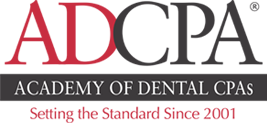 Have you wondered whether you actually need to have a professional accountant? Here are 5 signs that confirm you do:
Have you wondered whether you actually need to have a professional accountant? Here are 5 signs that confirm you do:
1) You earn over $200,000 per year – Your odds of being audited once you start earning over $200,000 a year increases to nearly 4%. While this may not seem like a large number, it’s actually an increase of over 300%. Having your financials in order in case this does occur is vitally important once you become a high-earner.
2) You are a business owner or are self-employed – Utilizing the services of an accounting professional is vitally important for any business owner or entrepreneur. Tax laws change annually. The current US tax code has over 7 million words in it. Making sure all of your deductions are included, your assets are depreciating properly, and you are maximizing your tax savings will wind up saving you money in the long run.
3) You are setting money aside for others – When putting money aside for your children, grandchildren, or anyone you want to take care of, it’s very important to use a financial professional to decide which vehicles to use for tax-deferred or tax-free savings. This includes college savings plans or trusts.
4) You are incurring large capital gains tax – The key to success in paying big capital gains tax is paying at long-term rates. An accountant can help you with a Qualified Small Business Tax Credit, minimize your taxes, and help you set long-term payment goals.
5) You are experiencing rapid growth in your business – Not only is keeping your finances up to date time-consuming, it’s also complicated. When you’re experiencing rapid growth, it’s time to call in an accounting professional. Having more customers, employees, and vendors is going to require more paperwork and number crunching and can rapidly become impossible for you to manage.



 Though most of the attacks making headlines are those aimed at large organizations or political groups, roughly a third of all data security breaches in the last few years have occurred in the health care industry. Of these, employee error caused three times as many breaches as external attacks. In addition, more than half of the businesses who experience a security breach have fewer than 1,000 employees.
Though most of the attacks making headlines are those aimed at large organizations or political groups, roughly a third of all data security breaches in the last few years have occurred in the health care industry. Of these, employee error caused three times as many breaches as external attacks. In addition, more than half of the businesses who experience a security breach have fewer than 1,000 employees. 1) The word “Tax” comes from the Latin “Taxo” which means “I estimate”.
1) The word “Tax” comes from the Latin “Taxo” which means “I estimate”.


